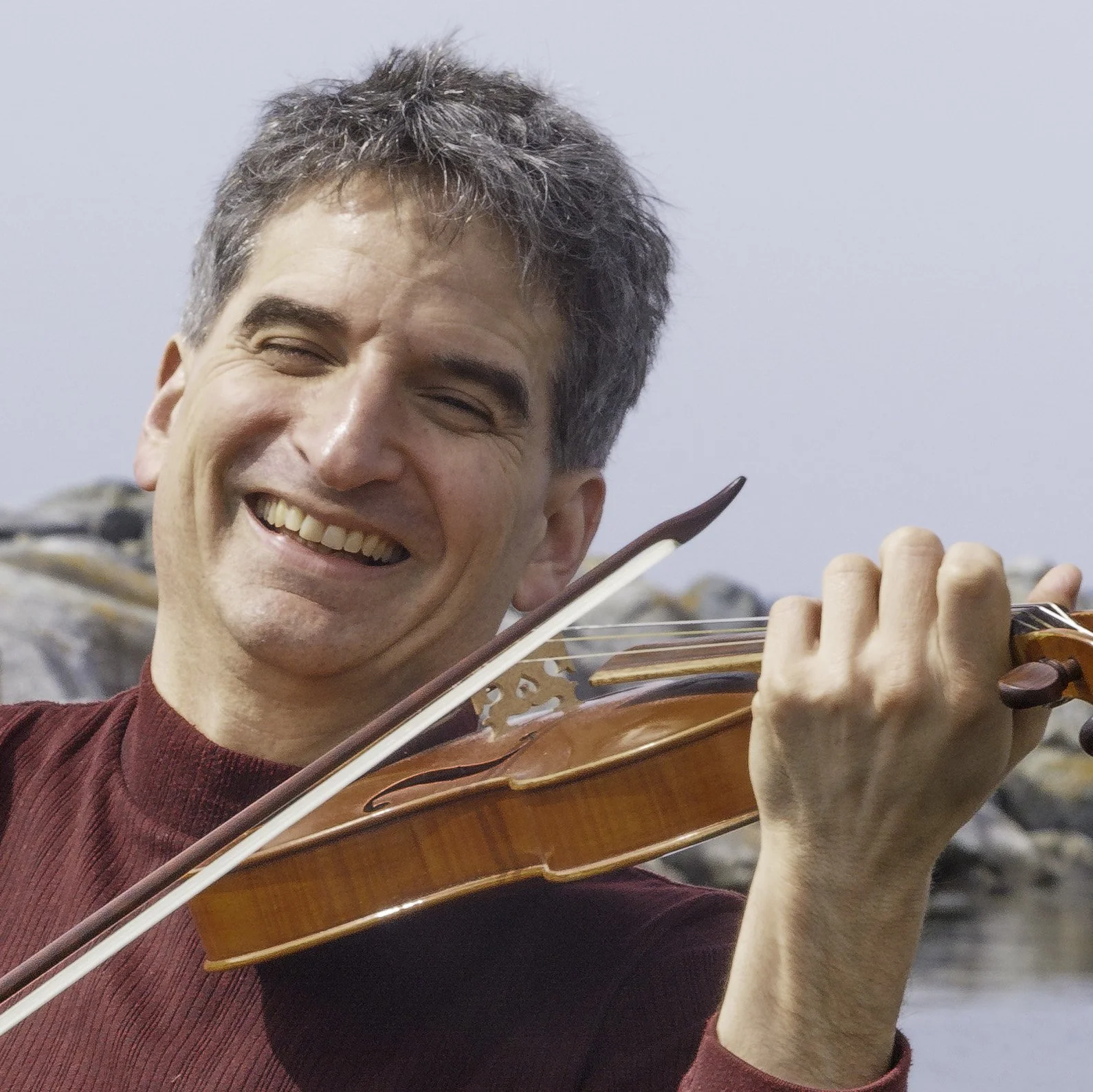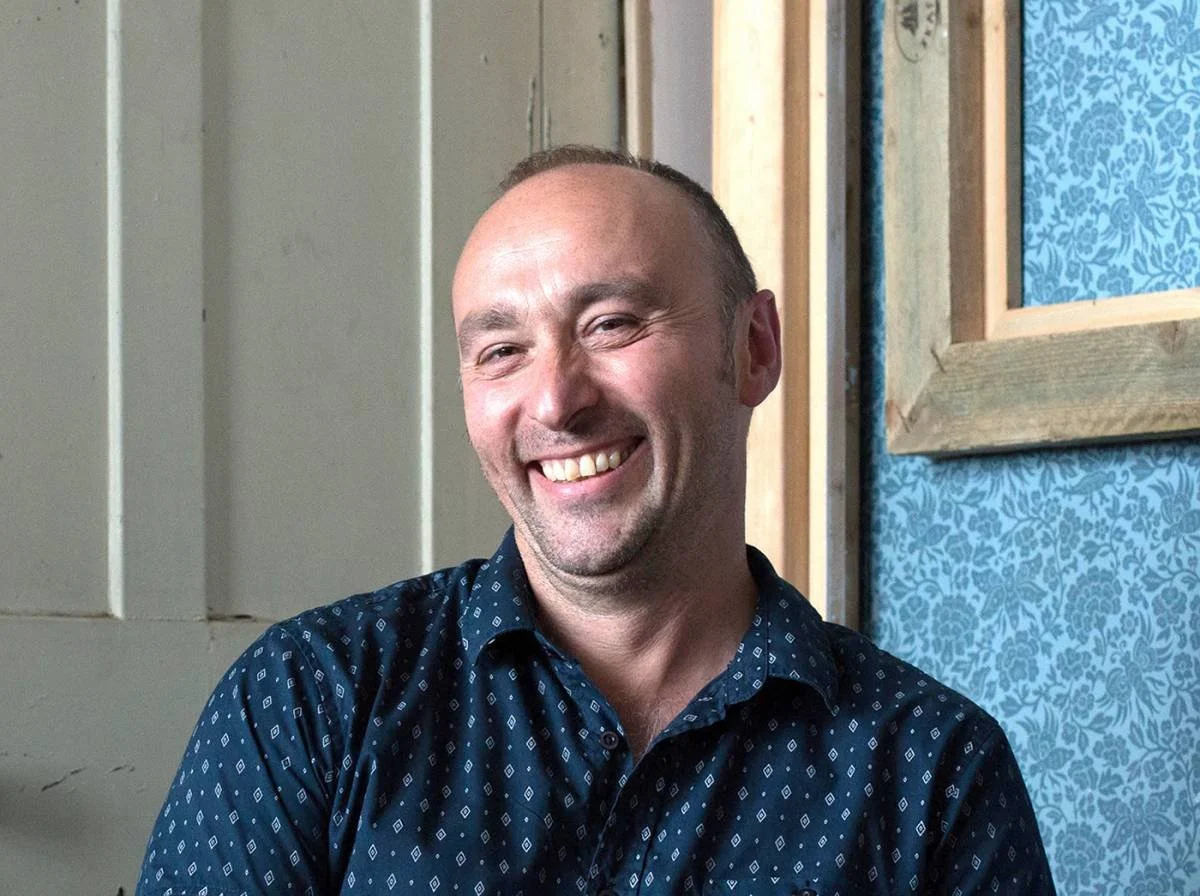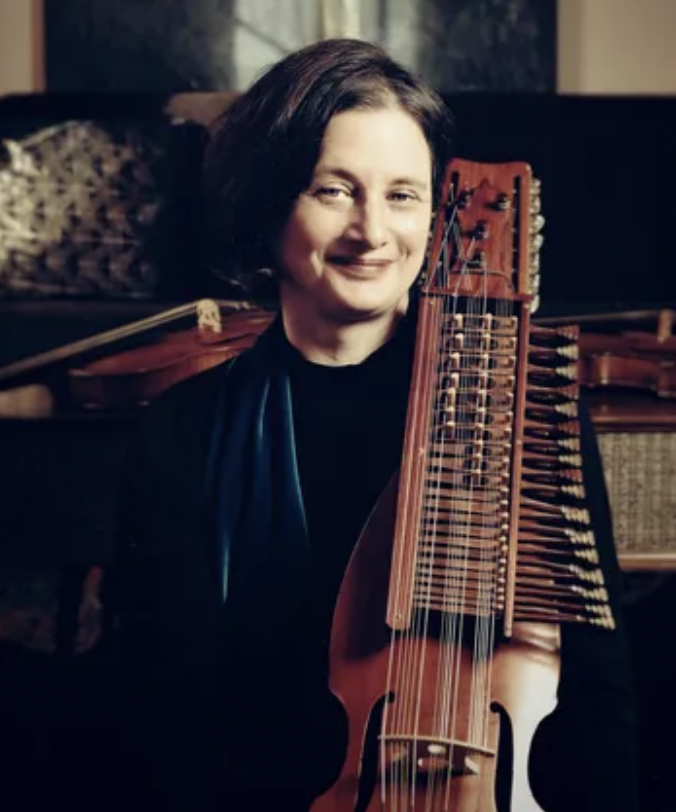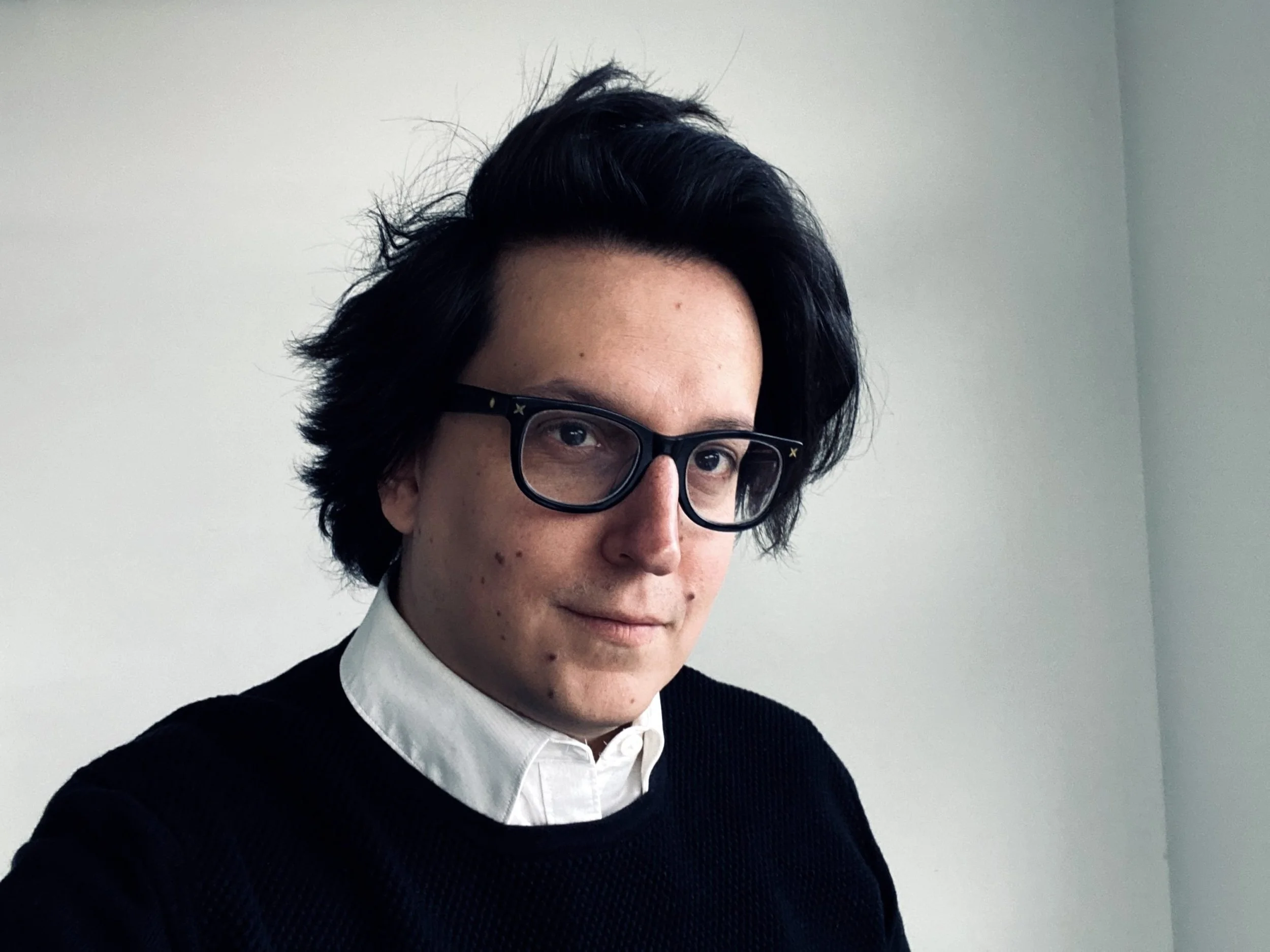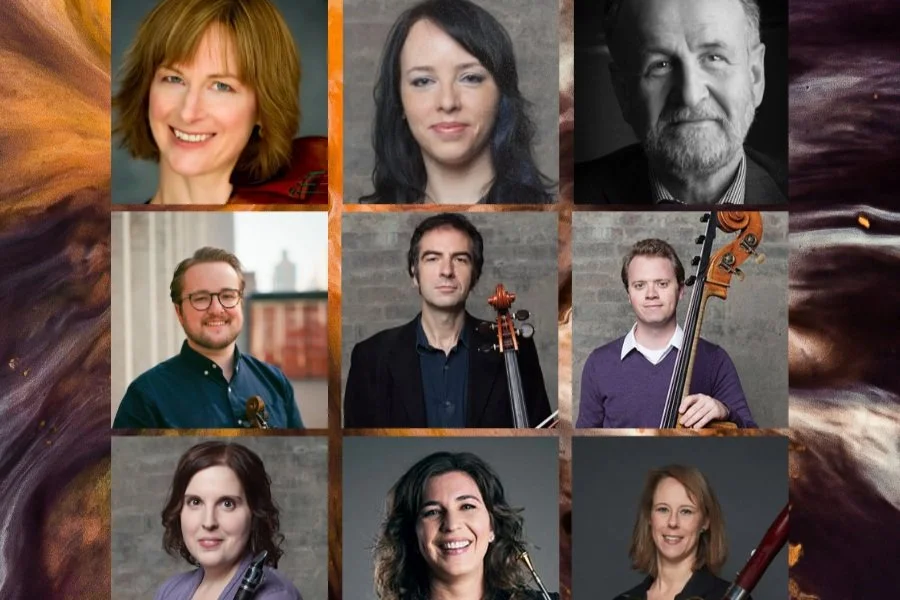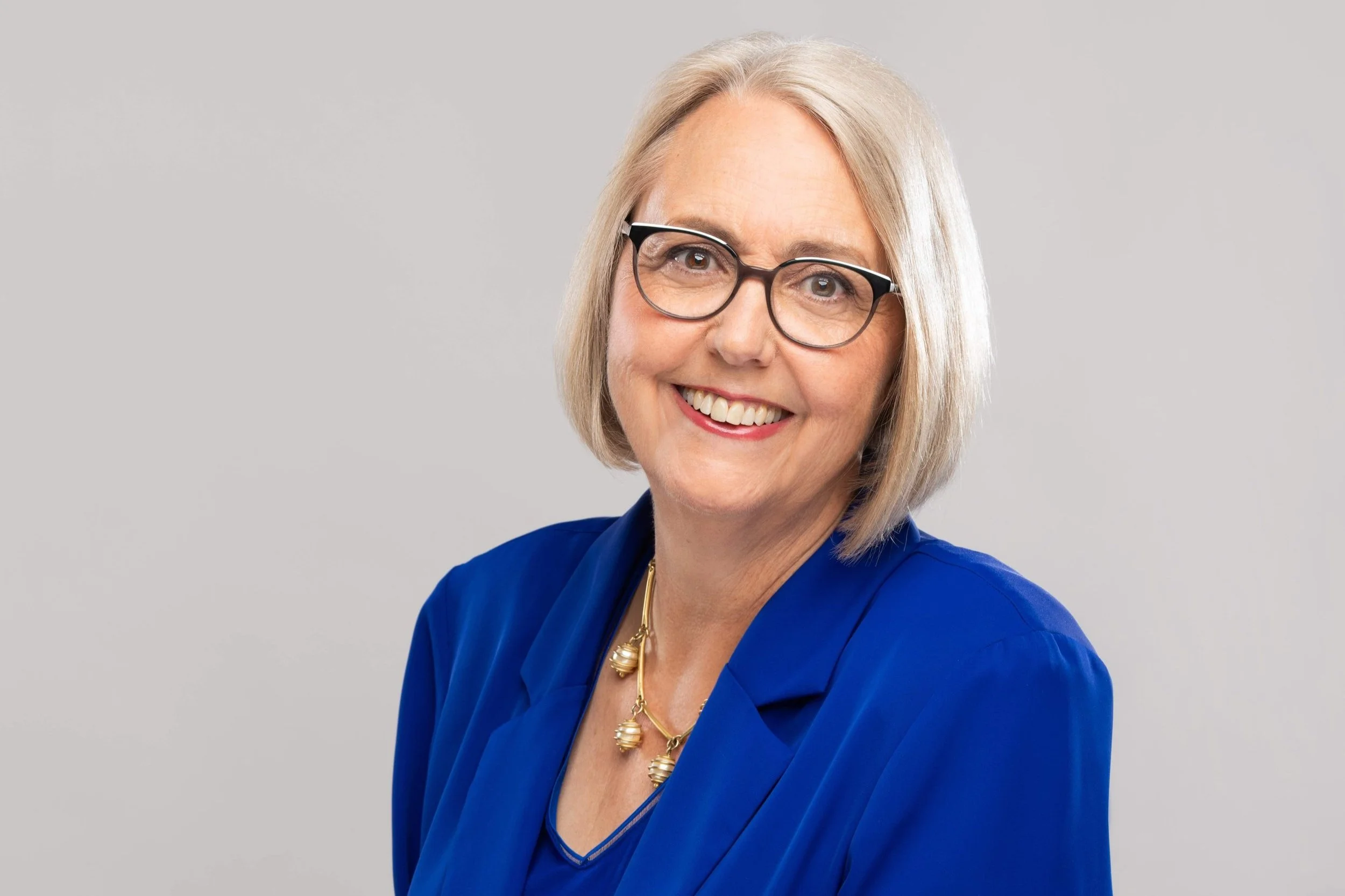Music review: David Greenberg and David McGuinness deliver uplift at Vancouver Bach Festival
Joining the two in-demand musicians was Kirsty Money, who made playing the nyckelharpa look easy
David Greenberg.
David McGuinness. Photo by Alex Woodward.
Early Music Vancouver presents the Vancouver Bach Festival at various venues until August 6
BAROQUE, FOLK, SCOTTISH, and Cape Breton music: they might not seem like obvious bedfellows, but violinist David Greenberg and keyboardist David McGuinness morphed the forms in the most entertaining of ways at one of the concerts at Early Music Vancouver’s 2022 Vancouver Bach Festival.
The two are EMV’s 2022 artists-in-residence, and the title of their July 28 performance, A Curious Collection of Tunes, at Christ Church Cathedral aptly summed up their genre- and era-fusing program.
EMV artistic director Suzie LeBlanc noted in her welcome remarks that the pair’s music had buoyed her throughout the pandemic. The two Davids have been working together for more than two decades, and their catalogue not only lifted her spirits during those long days of social distancing but also, it turns out, happens to be great music to clean the house to, she said with a laugh.
Audiences got a taste of that uplift at A Curious Collection of Tunes. The afternoon concert kicked off with a trio of works by William Christie, a violinist, composer, and dance teacher from Aberdeenshire who ascribed many Italian tempo directions to traditional songs: he marked “Pearlin Peggie’s Bonny” (or “The Laird of Foveran”) as dolce, for example, and “The Warld’s gane o’er me now” as moderato. In between those, Greenberg and McGuinness played “The Kail Reets of Fittie”, gradually turning up the dial on the openers’ mood, hinting at the fun to come.
Kirsty Money.
McGuinness—whose roles include director of Concerto Caledonia, an early music ensemble, and senior lecturer in music at the University of Glasgow—switched between harpsichord and piano and noted that the definition of “Scottish music” is contested in some areas. The duo’s excuse to include a piece by Georg Muffat—whose family left Scotland in the early-17th century for Savoy (near what is now the French border with Switzerland)—was justified, he said, by the fact that his parents were Scottish. Fair enough. Muffat excelled in French and Italian styles, while he wrote his 1677 Sonata Violino Solo (Violin Sonata in D major) while living in Prague. Greenberg, who has performed with organizations such as Tafelmusik, Les Musiciens de Saint-Julien, La Nef, and Symphony Nova Scotia, to name just a handful, calls the song “the big love sonata”. Sure enough, his heartfelt interpretation proved swooning.
With masterful musicianship, the pair gave a cheeky playfulness to “Spring Any Day Now” by Fred Frith, an English avant-garde guitarist and improviser. Influenced by the composer’s time with Swedish group Samla Mammas Manna, the song was also informed by several European dance traditions.
Bach, of course, made an appearance on the program, the artists performing the jaunty “Gigue” from Partita for violin no. 2 in D minor BWV 1004. Their upbeat energy belied the piece’s rhythmic complexity.
Greenberg shared a sneak peek of his August 4 solo Vancouver Bach Festival performance, Multiple Voices for One (which is also the name of his soon-to-be-released album) with two bold selections written for friends back east. “Deer John – A Cautionary Tail” emanated a cool, bluesy vibe, while the Celtic-inflected “Susan’s Reel” was positively racy.
McGuinness, meanwhile, seemed to be having a hoot playing “The Lee Rigg, with variations”, by Alexander Reinagle, whose Hungarian father was a professional musician and whose mother was Scottish. Reinagle first published the song in 1782 in Glasgow before heading to Philadelphia, where he revised it and published it anew; from there, versions by other composers showed up, akin to the way Scottish culture gets passed around, McGuinness explained. While there are multiple different endings, McGuinness chose the one he found the most joyful.
A concert highlight was the Vancouver Bach Festival debut of Kirsty Money on nyckelharpa. A B.C. native, Money studied at the Victoria Conservatory of Music and at McGill and Western Universities, and she is now a member of the first violin section of Symphony Nova Scotia. Upon taking to the stage, she commented that for folks who have never seen the traditional Swedish instrument before, it might look like a medieval torture device. It’s held like a guitar and played with a bow; it has four strings, three with keys, like a piano. She made playing it look easy, joining the two Davids for three songs by Finnish fiddle supergroup JPP (Arto Järvelä, Timo Alakotila, and Mauno Järvelä). “Ellun sotiisi”, “Kruunupyyn katrilli”, and “Laitisen Mankeliska” weaved together folk, classical, and even hints of jazz, making for a mesmerizing segment. The three musicians burst out into a big, shared laugh afterward, a sentiment that reflected the concert’s overall feel.
No matter how the tunes might be categorized in a world that loves to label things, you just had to look down to get a sense of how the audience was responding: although you couldn’t hear anything above the music, there were a lot of toes tapping on the floor. The crowd made a lot more noise at the end, with a standing O.



